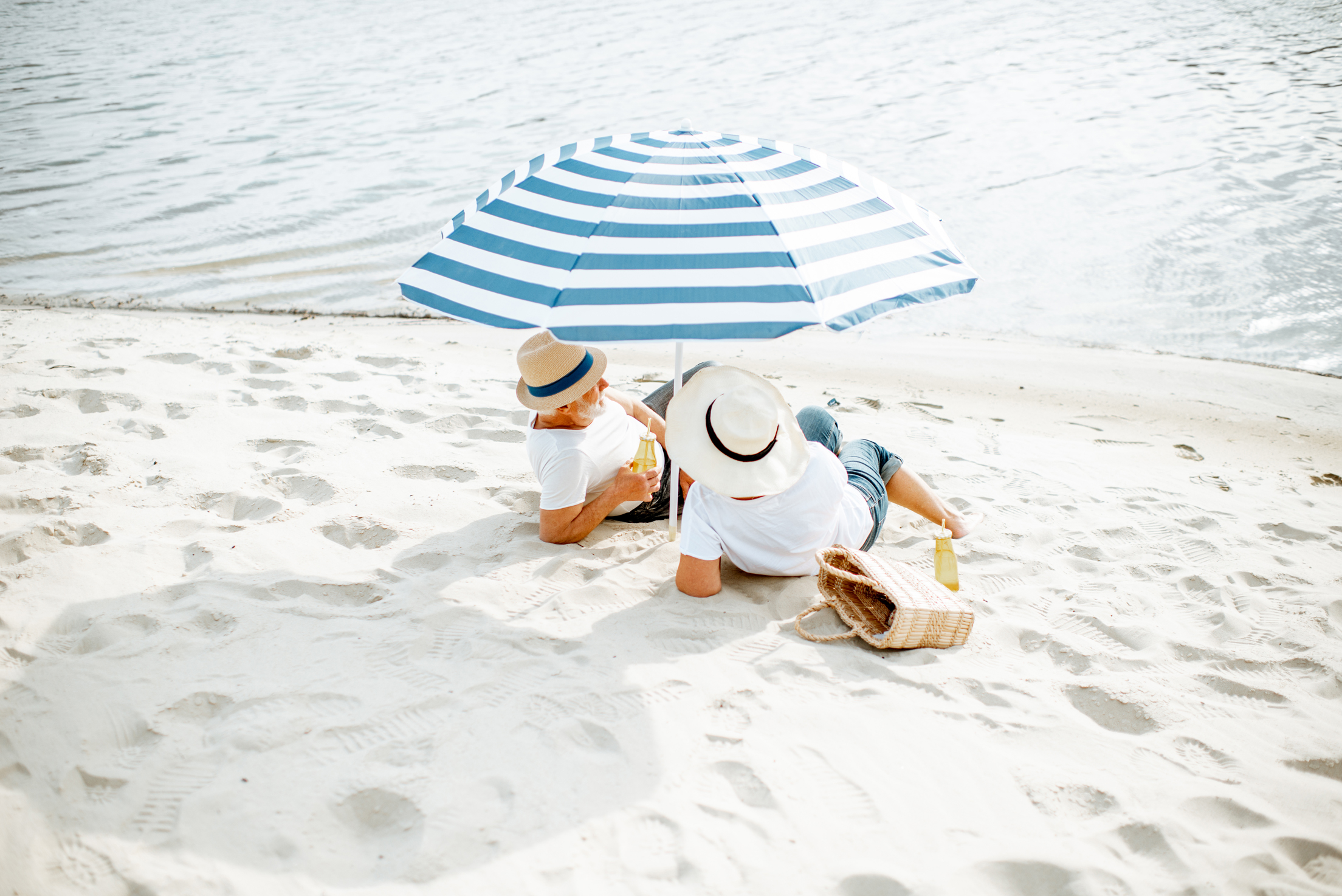Summer is well underway and that means people are spending more time in the sunshine.
Sunlight exposure has been proven to improve sleep; increase bone health and balance; boost mood; and even prolong a person’s life. While vitamin D from the sun – obtained while enjoying outdoor activities like biking, walking, and just plain relaxing by a pool – provides numerous wellness benefits, it’s very important to take steps to protect yourself from the sun’s rays.
According to the CDC’s website, fewer than half of older adults protect their skin from the sun when they go outside for an hour or more – and this may raise their risk of getting skin cancer. The sun emits radiation known as UVA and UVB rays, both of which can damage the skin and the eyes when not properly protected. UVB is short-wave radiation that can affect the outer layer of the skin’s surface. UVA rays are long-wave radiation that can penetrate deeper to the middle layers of the skin. In addition to contributing to skin cancer, unprotected exposure to the sun can cause vision problems and damage to the eyes, burns and rashes on the skin, and can weaken the immune system.
You don’t need to stay inside all summer! The key is finding a safe way to take in those golden rays. Here are a few tips from McLean Wellness Director Kimberly Wright:
Protect your eyes. The American Academy of Ophthalmology recommends always wearing protective sunglasses when enjoying the outdoors. Look for sunglasses that offer 100% UV absorption. Glasses labeled as UV400 will offer this level of protection from UVA and UVB exposure.
Slather on the SPF. It is recommended that adults apply one palm full of a broad-spectrum SPF 15 or higher to all exposed areas of the skin, at least 20 minutes before sun exposure. Remember to cover all areas including tops of ears, exposed scalp, and tops of feet. It is also recommended to reapply every 2 hours. Bonus tip: Set an alarm to remind you to reapply and avoid accidental overexposure.
Check the labels. Before you plan a day at the beach make sure to check your sunscreen’s expiration date. Like any cosmetic product, sunscreen has a shelf life. If your sunscreen is past its expiration, it is time to replace it. The active screening agent loses its potency and no longer provides the intended protection once expired.
Cover up. There are many options available now for sun-protective clothing. You can purchase wide-brimmed hats, shirts, and even shorts and skorts with SPF ratings to boost your protection. Finding shade is still a great option too!
The summer months are prime time to enjoy the outdoors – safely. And don’t forget to incorporate these tips in the other seasons as well. The sun’s rays shine all year long!


